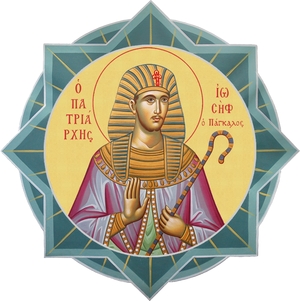These reflections are a result of more than 40 years of ministry as a Roman Catholic priest. Most of these years I spent in the Diocese of Charlotte which covers Western North Carolina. Now I am retired, and live in Medellín, Colombia where I continue to serve as a priest in the Archdiocese of Medellín.

Blessed be the God and Father of our Lord Jesus Christ,
who has blessed us in Christ
with every spiritual blessing in the heavens,
as he chose us in him, before the foundation of the world,
to be holy and without blemish before him in love. (Eph 1:3-14)
Chosen and blessed in love . . . that’s who we are. Maybe that’s what is meant by “original blessing.” Sometimes we forget that before there was ever a history of sin in the world, there was a history of grace. And God’s grace that chooses and blesses us lifts us up in love that never ends.

Are not two sparrows sold for a small coin?
Yet not one of them falls to the ground without your Father’s knowledge.
Even all the hairs of your head are counted.
So do not be afraid; you are worth more than many sparrows. (Mt 10:24-33)
As the old song says, “His eye is on the sparrow, and I know he watches me.”

Israel had sent Judah ahead to Joseph,
so that he might meet him in Goshen.
On his arrival in the region of Goshen,
Joseph hitched the horses to his chariot
and rode to meet his father Israel in Goshen.
As soon as Joseph saw him, he flung himself on his neck
and wept a long time in his arms. (Gen 46:1-7, 28-30)
A long hoped-for reunion between a parent and a child, more than 10 years in some cases—well, it doesn’t get much better than that!

“Come closer to me,” he told his brothers.
When they had done so, he said:
“I am your brother Joseph, whom you once sold into Egypt.
But now do not be distressed,
and do not reproach yourselves for having sold me here.
It was really for the sake of saving lives
that God sent me here ahead of you.” (Gen 44:18-21, 23b-29; 45:1-5)
The story of the Patriarch Joseph continues today with the great reveal . . . “I am your brother Joseph.” Wow! God always has surprises for us, because God always has a plan.

When hunger came to be felt throughout the land of Egypt
and the people cried to Pharaoh for bread,
Pharaoh directed all the Egyptians to go to Joseph
and do whatever he told them. (Gen 41:55-57; 42:5-7a, 17-24a)
The Joseph cycle within the patriarchal history is like reading a short story of sorts. It’s concise, to the point, with an exotic setting (Egypt), loaded with sibling rivalry conflict, and with the fascinating character of Joseph, the Jewish kid who does great, (a rags to riches story), rising to the top of Egyptian society and power. It’s a fascinating story that sets up the Exodus.



